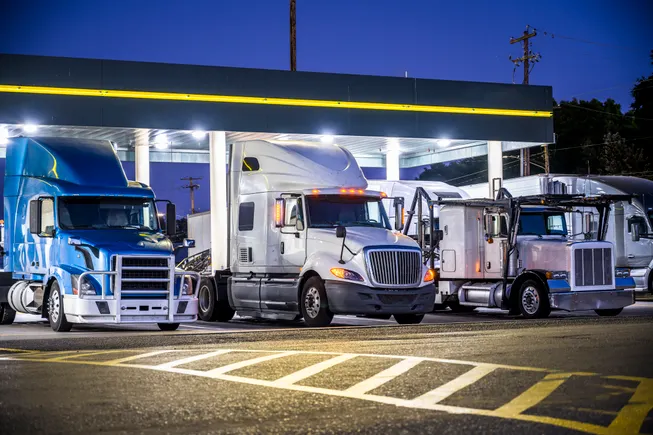Multiple labor regulations currently in development are expected to significantly impact the trucking industry in the coming year.
Executives in trucking are paying close attention to these regulations, which will coincide with additional equipment regulations set to take effect in 2024.
Key areas for new regulations include the classification of independent contractors, meal and rest break requirements, and enhanced training for new drivers.
Industry stakeholders have shared their perspectives on these rules as they prepare for the upcoming year.
Federal Regulation on Independent Contractors
In January 2024, the Labor Department announced a change in the classification of independent contractors, moving away from a process established in 2021.
The government indicated that a weighted-factor analysis will be replaced by six equally influential factors when assessing work relationships.
According to David Heller, Senior VP of Safety and Government Affairs at the Truckload Carriers Association, the trucking sector has no exemptions. However, if implemented in March, this change could allow businesses to better direct the safety training for independent contractor drivers.
“Previously, it was almost a hands-off approach due to the need to keep a distance between independent contractors and companies to avoid being seen as employees,” Heller explained. “This rule clarifies that carriers can address aspects of Federal Motor Carrier Safety regulations relevant to these drivers.”
While the rule might complicate business operations, it differs from California’s AB5 law regarding independent contractors, which has additional stipulations, Heller noted. The legal struggle surrounding AB5 continues with involvement from the California Trucking Association and the Owner-Operator Independent Drivers Association.
Meal and Rest Break Requirements
A coalition led by groups such as the Teamsters aims to extend meal and rest break regulations in California and Washington state to truckers.
This effort is causing tension with federal regulations, as the Federal Motor Carrier Safety Administration has ruled that federal laws take precedence over state regulations.
“If this is reversed, truckers might have to comply with varying state laws,” Joe Rajkovacz from the Western States Trucking Association cautioned. “The last thing needed is confusion upon crossing state lines regarding new requirements.”
The Truckload Carriers Association has expressed its opposition to modifying current federal regulations, with Heller suggesting that a conflicting set of rules is not the optimal solution.
FMCSA is currently seeking comments on this issue until February 26, 2024.
Broker Transaction Transparency
A notice for potential new broker regulations is expected in October, responding to concerns from the Owner-Operator Independent Drivers Association (OOIDA) and the Small Business in Transportation Coalition.
OOIDA is advocating for a rule requiring brokers to provide transaction information electronically within 48 hours and to prevent delays in releasing such information, as stated by OOIDA’s Director of Federal Affairs, Jay Grimes.
“We’ve seen various loopholes that brokers exploit to prevent motor carriers from accessing information,” Grimes added. “We would like to see the provisions we’ve requested and believe this could serve as an informational proposal for gathering feedback.”
Safety and Training Improvements
OOIDA’s Director of Communications, George O’Connor, is hopeful that FMCSA will implement recommendations to enhance training for new drivers, ensuring that entry-level workers operate equipment safely.
Dan Horvath, Senior VP of Regulatory Affairs and Safety Policy at ATA, mentioned that the rulemaking will propose various measures while also soliciting input from the industry on additional necessary actions.
“DOT aims to review the curriculum for potential enhancements,” Horvath noted. “Current agenda items include adding further curriculum requirements.”
FMCSA has stated in a regulatory outlook that it intends to gather stakeholders’ opinions on improving safety for women drivers and trainers and to address the issues surrounding workplace sexual harassment.


